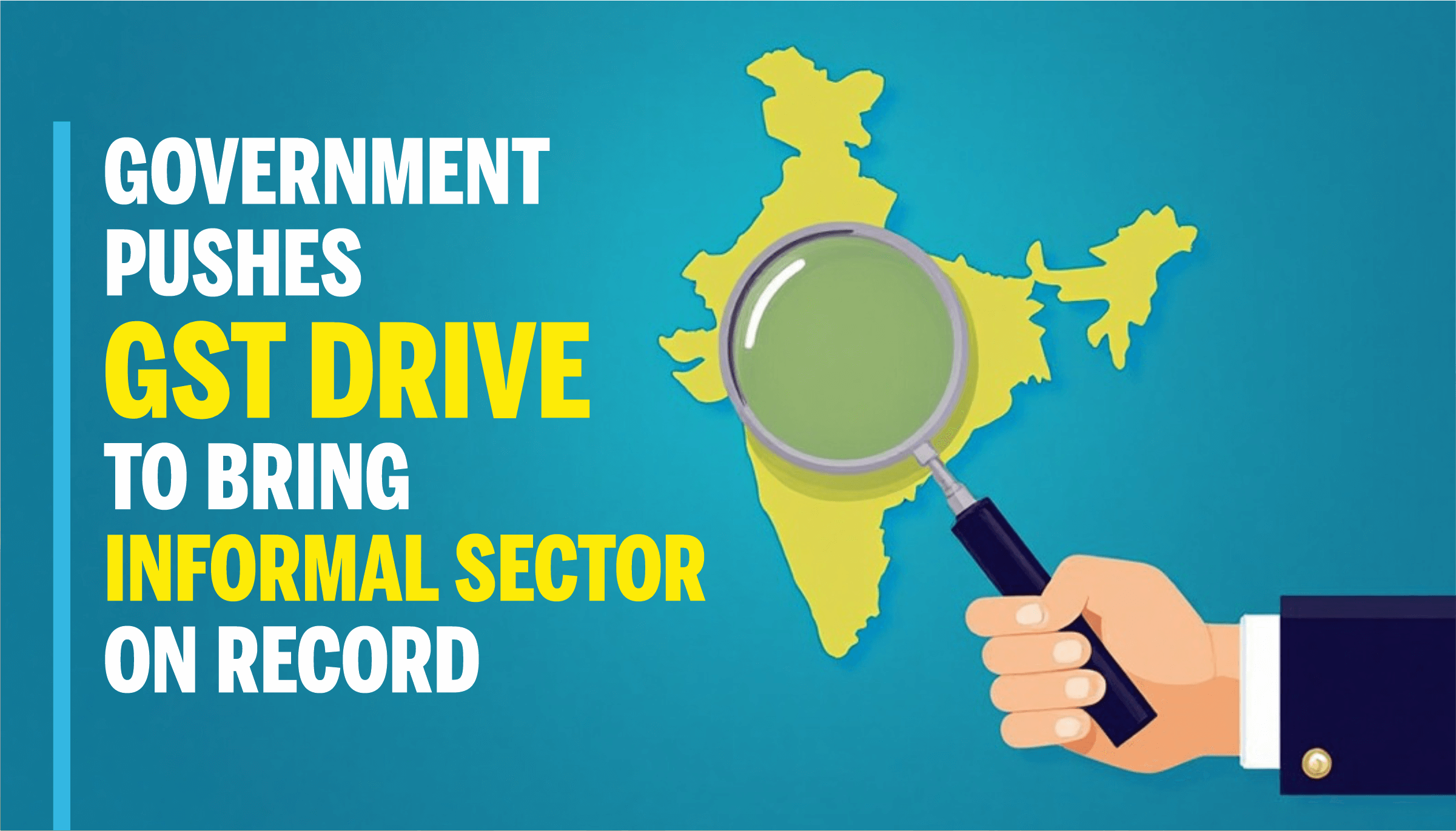Govt Pushes GST Drive to Bring Informal Sector on Record

In a significant push to bring unregistered businesses into the formal economy, the Government of India has initiated a nationwide campaign aimed at expanding Goods and Services Tax (GST) compliance across sectors and states. According to exclusive inputs sourced by CNBC-TV18, the Ministry of Finance has directed the Central Board of Indirect Taxes and Customs (CBIC) to mobilise its field teams and conduct targeted outreach in cash-intensive and informal business zones.
What Is This Drive About?
At its core, this initiative is about formalising the informal. From roadside food vendors to small retailers, beauty parlours, and local service providers, the government wants to ensure more of these businesses come under the GST net. This means they will be officially registered, pay tax, and benefit from being a recognised part of the economy.
The directive includes:
-
Mapping and analysing cash-dominated markets.
-
Reaching out to businesses in high-footfall commercial zones.
-
Identifying potential GST payers in traditionally unregistered segments.
Government sources say the approach will be persuasive rather than punitive, focused on building trust and encouraging voluntary registration.
Why This Matters: Big Picture for India
India’s informal economy has historically comprised nearly half of the workforce and a significant portion of GDP, operating largely outside the tax system. This limits revenue collection and workers’ access to formal credit, social security, and protections.
By increasing GST registrations, the government aims to:
-
Reduce cash-based, unaccounted transactions.
-
Widen the tax base.
-
Lower per-person tax burden.
-
Make room for rationalising GST rates in the future.
Record GST Numbers Back the Push
This drive follows record-breaking GST revenues in April 2025 — ₹2.36 lakh crore—a 12.6% year-on-year jump. Over 2.5 million new GST registrations were recorded in FY25, bringing India’s total registered taxpayers to 15 million.
-
Uttar Pradesh now leads with over 1 million GST registrations, showing deep penetration of formalisation efforts.
-
Maharashtra, with its industrial and services backbone, continues to lead in absolute GST collections.
-
Other states, such as Gujarat, Karnataka, and Tamil Nadu, have also reached the one million registrants mark, marking a broad-based improvement in tax compliance.
What It Means for Businesses and the Economy
Formalising the economy isn’t just about taxes. It paves the way for better infrastructure, fair competition, and enhanced business confidence. As more businesses register under GST:
-
Productivity improves with digital records and transparency.
-
Access to credit becomes easier through verifiable income data.
-
FDI flows increase as India becomes a more predictable and accountable market.
Experts also highlight that digital trails created by GST will help long-term policy planning, allowing governments to understand spending, consumption, and production patterns more precisely.
Conclusion: A Step Towards Structural Reform
While this nationwide GST outreach is a welcome step towards building a stronger, more transparent economy, it’s equally important that the registration and compliance process remain smooth and non-disruptive for small businesses.
The success of this drive will depend not just on numbers, but on how effectively the government simplifies onboarding, reduces red tape, and supports new entrants into the tax system.
Formalisation should empower businesses, not burden them. If implemented with empathy and efficiency, this initiative can mark a turning point in India’s journey towards a truly inclusive formal economy.
